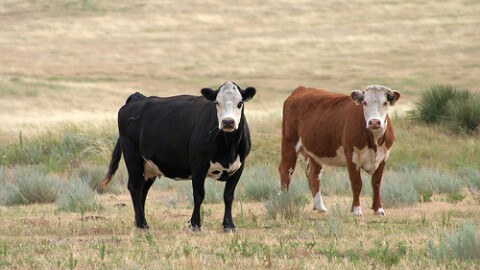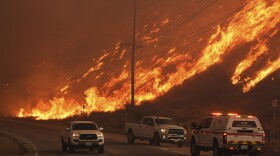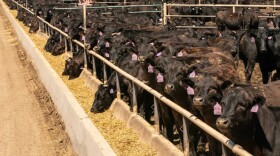-
One is a resolution calling on the federal government to increase the share of royalties Wyoming earns off of mining and drilling on federal lands. The other modernizes laws about subleasing state grazing land.
-
The act would set aside funds to support agricultural initiatives in a newly created trust. Representatives expressed concern about redundancy.
-
A new report finds 2025 brought widespread drought, massive wildfires and destructive windstorms across several Mountain West states — and underscores how closely connected those disasters have become.
-
The man accused of bringing a leashed, muzzled and injured wolf into a Sublette County bar has reached a plea agreement less than two weeks before his trial.
-
Steve Pearce, Trump's pick to lead the Bureau of Land Management, said he would not propose large-scale sales of public lands.
-
The House Draw, Flat Rock and Constitution fires burned more than a quarter of a million acres, hundreds of miles of fence and rangeland that supports local cattle and sheep ranchers.
-
The U.S. Forest Service has opened a 10-day hiring window for summer workers. Some hope it'll boost trail crews and wilderness rangers, which were cut during the Trump administration's reduction in federal workforce.
-
President Trump’s nominee, Steve Pearce, is a former New Mexico congressman and Vietnam War pilot. The opposition feels he could sell off public land.
-
The 11 senators and representatives - all Democrats - said that the consolidation of four Department of Interior agencies’ wildfire programs is being done “without adequate analysis, transparency, or planning to prevent disruption during what is expected to be a significant fire season or to safeguard long-term wildfire preparedness.”
-
A parasitic fly is inching closer to the US border. Colorado livestock leaders are already preparingThe New World screwworm has been detected less than 100 miles from the border with Texas.
-
Wyoming lawmakers are thinking about future sources of electricity demand – and how it’ll be transmitted – in two bills. Both call on the Wyoming Energy Authority, a six-year old state entity that’s met previous criticism.
-
The study comes in advance of the upcoming midterms.

















